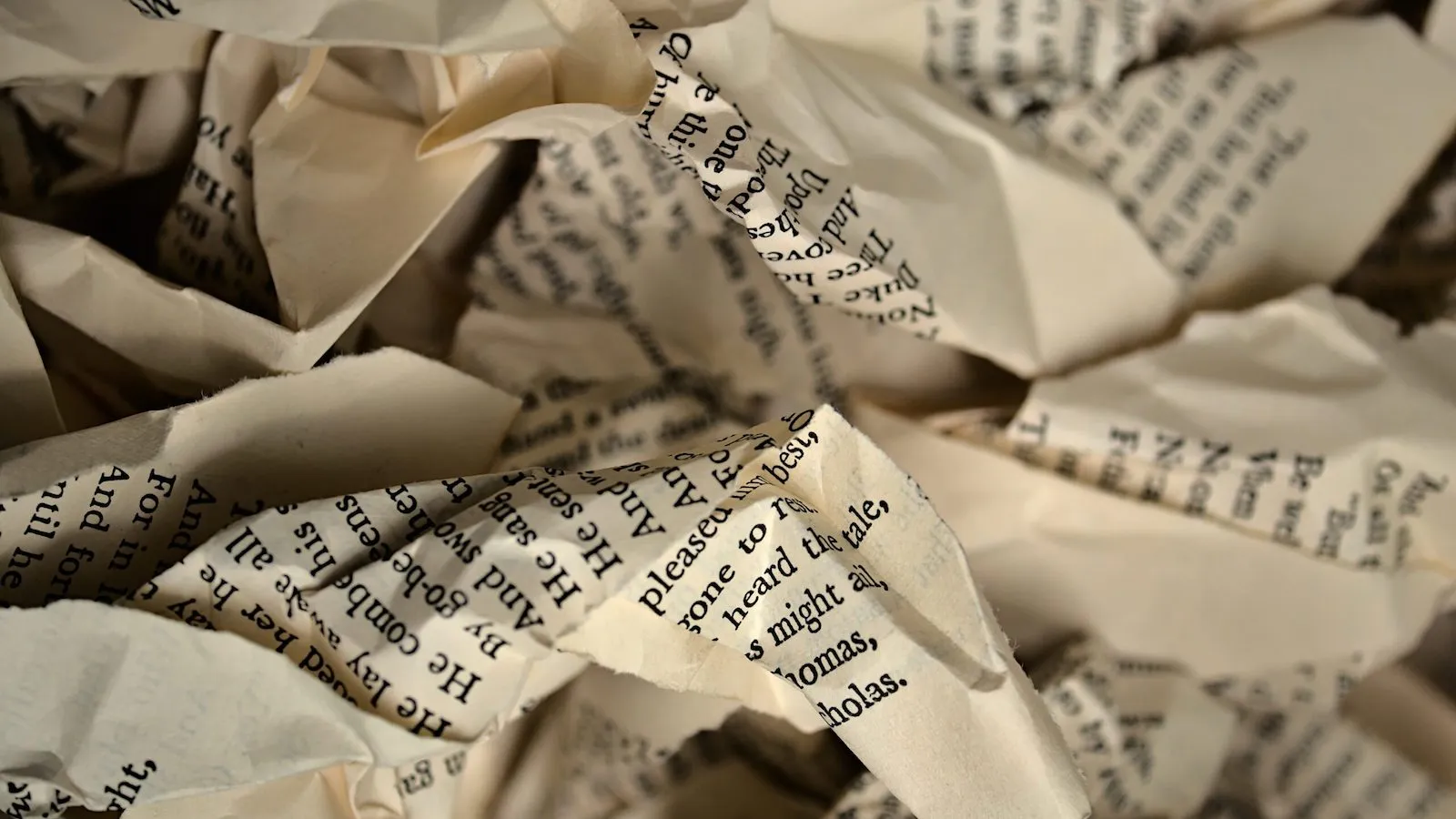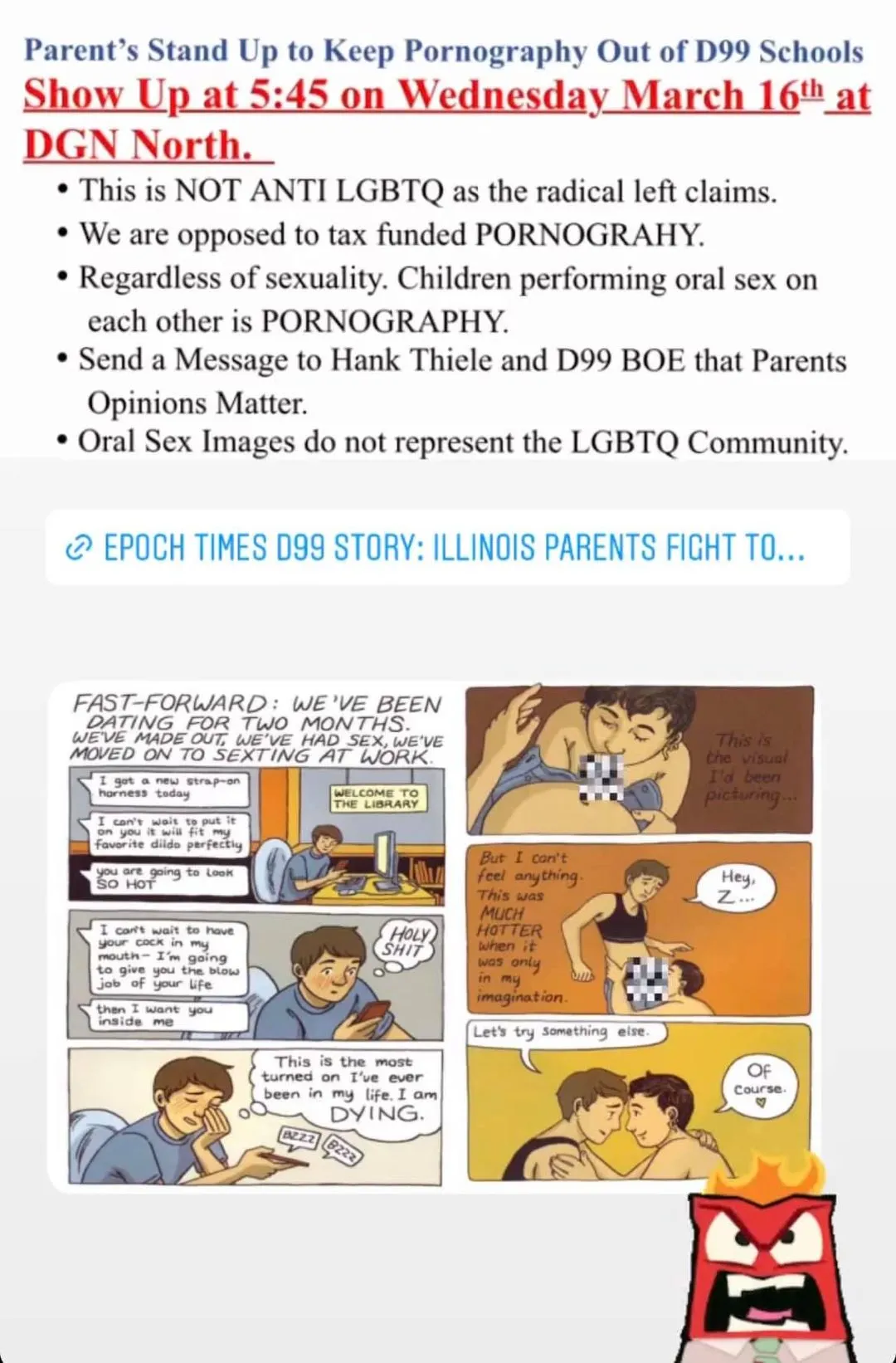
What Are Obscenity Laws?: Book Censorship News, March 18, 2022
One of the most comment complaints parents and citizens are lodging against books in public schools and libraries is that the material breaks obscenity laws. This, along with citing pornography laws, is the justification being cited in both formal and informal complaints. It’s the language being shared in social media “parents rights” groups to prop up argumentation. Several would-be censors have found this a natural lead-in to creating police reports about so-called obscene books like Gender Queer, Out of Darkness, and All Boys Aren’t Blue.
Unfortunately for these censors, what they’re sharing and advocating fails to meet the definition of obscenity.
Obscenity is a small subset of pornography. It’s outlined as follows in U.S. Federal Law on Obscenity:
The U.S. Supreme Court established the test that judges and juries use to determine whether matter is obscene in three major cases: Miller v. California, 413 U.S. 15, 24-25 (1973); Smith v. United States, 431 U.S. 291, 300-02, 309 (1977); and Pope v. Illinois, 481 U.S. 497, 500-01 (1987). The three-pronged Miller test is as follows:
1. Whether the average person, applying contemporary adult community standards, finds that the matter, taken as a whole, appeals to prurient interests (i.e., an erotic, lascivious, abnormal, unhealthy, degrading, shameful, or morbid interest in nudity, sex, or excretion);
2. Whether the average person, applying contemporary adult community standards, finds that the matter depicts or describes sexual conduct in a patently offensive way (i.e., ultimate sexual acts, normal or perverted, actual or simulated, masturbation, excretory functions, lewd exhibition of the genitals, or sado-masochistic sexual abuse); and
3. Whether a reasonable person finds that the matter, taken as a whole, lacks serious literary, artistic, political, or scientific value.
Any material that satisfies this three-pronged test may be found obscene.
This week, the Epoch Times, a right-wing fake news site, posted about a rally “parents rights” activists planned to wage at Downers Grove North High School in Illinois. The call to action looked as follows:

Pornography is a constitutionally protected matter of free speech and expression. The only illegal pornography is that depicting child pornography — defined here — and material defined as obscene.
In no way is Gender Queer, even depicted in excerpt as it is above, pornography. The imagined sex scenes are between consenting adults and do not happen in the story’s timeline. This, of course, doesn’t matter to censors.
That’s where obscenity comes into play.
Censors do not understand (and do not care) that in order for material to be deemed obscene, it needs to be taken as a whole. Cherry-picking pages and passages to prove obscenity isn’t how the law works. In fact, Gender Queer is a sterling example of how obscenity laws like the ones in the U.S. protect freedom of speech and expression. Indeed, sex is discussed and illustrated. But it is sliver of the story as a whole, constituting no more than 2% of the entire text.
But what would censors who enjoy picking and choosing what to battle know about taking anything as whole?
Further, not a single title among the hundreds being challenges include child pornography. Publishers would not purchase, back, nor defend a work of child pornography, as their legal departments are clear on what the laws are. Nude bodies and even nude bodies depicted in a consensual relationship on page in a book for middle or high school students is not child pornography.
The morbid fixation and pornographic gaze come only through the eyes of those same right-wing censors.
Taken as a whole, that’s pretty obscene indeed.
This Week’s Call To Action
Indivisible, alongside several Illinois-based groups, are hosting a free Zoom educational session this weekend on combatting disinformation at school board meetings. This is the eighth in a series, but anyone is welcome to attend and apply the information to their own school boards anywhere in the country.
To join, register here. The program begins at noon central on Saturday, March 19.
For more ways to take action against censorship, use this toolkit for how to fight book bans and challenges, as well as this guide to identifying fake news. Then learn how and why you may want to use FOIA to uncover book challenges.
Book Censorship News: March 18, 2022
- Out of Darkness, We Are The Ants, and This Book Is Gay join five other titles being permanently removed from Granbury ISD in Texas. Here’s the longer story.
- 110 books will be removed from the North East ISD library in Texas, following its review. This is the full list of books being reviewed, their current status, and the actions taken.
- Moore County schools in North Carolina will keep Melissa (formerly titled George) on shelves.
- Lawn Boy and Gender Queer are being targeted in Jefferson County, Kentucky. The board referred to the complainants to the proper channels outside the school board meeting.
- Bedford County schools in Virginia will not remove Beloved.
- Too many of the stories about book challenges don’t give as much context as they could, but this is an exception. Several parents complained about a slate of books at the Central Bucks school district in Pennsylvania, and the story is clear on where they got the book titles they’re complaining about (and the group behind the list). No action has been taken on the complaints yet.
- This link is paywalled, but there’s a little good news from Polk County schools in Florida: The Kite Runner and Drama will remain on shelves.
- In Ohio County, West Virginia, books that were challenged will remain on shelves but likely on higher shelves only teachers can reach. This is still censorship, and several of the Moms For Liberty chapters celebrated this as a victory.
- Lawn Boy will remain in Cary High School in North Carolina.
- Parents complained about books being used in Bryant County Schools, Arkansas. The district reviewed the complaints and made changes to the curriculum, including literal censorship of those texts.
- Seems like the Maus story has been forgotten by the media, but debates over the book in McMinn County, Tennessee, schools continues.
- Bedford County schools in Virginia will keep 11 challenged books on shelves. An additional challenged book is one they don’t even have.
- This is certainly a story: Mein Kampf was challenged in Halliburton County Public Library in Ontario, Canada. The director cannot find the annotated edition in English to replace it with.
- At Rockingham County Schools, Virginia, the board worked on updating their challenge policies and procedures. One member of that board was very unhappy with the “red tape” required for a book to be challenged and removed, particularly after complaining himself about a book he wouldn’t name. Oh, and the Bible should be in every single school. These people are running for and sitting on school and library boards.
- Oley Valley School District in Pennsylvania is handling their school board meetings by having a police officer at each one. This comes after a parent complained about being stalked and harassed. Currently, parents are complaining about The Perks of Being a Wallflower.
- “Loretta Lowe, representing Ooltewah and Harrison, wrote that the school district’s library handbook is a ‘liberal tool’ that needs revision. She wrote that the reconsideration process for parents who submit complaints is long and difficult and also needs revision.” Reworking the policies and procedures of book selection is going well in Hamilton County, Tennessee. Again: these are the viewpoints running for and sitting on school and library boards making community-wide decisions.
- In Stamford, Connecticut, the school board is debating how to handle materials complaints. This is a worthwhile read for the book complaint they dealt with earlier in the school year and because it once again paints a picture of who is on these boards.
- Elizabethtown, Pennsylvania, school board members continue discussing what to do about parental complaints regarding material. This emerged due to The Perks of Being a Wallflower.
- “‘Last month, you heard from someone claiming pornographic books were in our media center, and that she denied being able to come into the school and prove that those books were there. That statement is partially true. The two books aren’t owned by TMS, and aren’t in our media center. The truth in that statement was she was denied to come into the school, and I will continue to do that,’ Paslay said. ‘We will deny entry into our school to random people calling in to say “I want to go take pictures in your library”.'” Just to emphasize this: parents were trying to get into the school buildings of the Iredell-Statesville Schools, North Carolina, to take pictures of material in the library.
- Speaking of parents being unhinged, in West Chester, Pennsylvania, parents are trying to get the names of district LGBTQ students because challenging books with queer characters wasn’t enough.
- Board members who defended keeping The Hate U Give in ROWVA schools in Illinois have vacated their positions. This is troubling.
- The story of this set of book challenges — including the mysterious disappearance of Beyond Magenta — is not one I’ve seen yet in my searching, but this editorial highlights what is happening in Delaware Valley, New Jersey.
- Remember the ImagineIf library in Kalispell, Montana? It continues to be a mess, this time with a bonus look at attempted censorship.
- Cadott, Wisconsin, school district is looking at six books challenged by parents in the district, including Hurricane Child, Melissa, and more.
- The Kite Runner was challenged and is going through the process of reconsideration in Cedarburg, Wisconsin, schools.
- Complaints about All Boys Aren’t Blue and The Black Friend led to no decisions on selection and materials policies and procedures in Hempsfield County, Pennsylvania, schools. The school director’s comments are troubling.
Further Reading
- The insidious rise of soft censorship — I’ll be honest in saying I don’t think it’s been rising. It’s always been around. The current censorship culture has brought the conversation back to light.
- Finally, this woman in Virginia is trying to make a parent-friendly database of books that includes content warnings and potential problems for parents within them. It is a bizarre project ripe with opportunity for further censorship…not to mention the title of the website is itself a red flag on how real adults who don’t work with books see books as political tools and little more. And who gets to determine the criteria for what is or isn’t appropriate here? Why isn’t the other problematic “parental knowledge” database of Common Sense Media enough? (She is, of course, a nice white lady).
- Operation Caged Bird Seeks to Unban Books from Naval Academy: Book Censorship News, April 25, 2025
- It’s Still Censorship, Even If It’s Not a Book Ban: Book Censorship News, August 30, 2024
- Are You Registered to Vote?: Book Censorship News, August 23, 2024
- What Is Weeding and When Is It Not Actually Weeding?: Book Censorship News, August 16, 2024
- How To Explain Book Bans to Those Who Want To Understand: Book Censorship News, August
- A New Era for Banned Books Week: Book Censorship News, August 2, 2024
- The Ongoing Censorship of High School Advanced Placement Courses: Book Censorship News, July 26, 2024
- The Quiet Censorship of Pride 2024: Book Censorship News, July 19, 2024
- Survey: What Happened During Pride Month? Book Censorship News for July 5, 2024
- The First American Union Understood The Necessity of Public Libraries and Education: Book Censorship News for June 28, 2024











